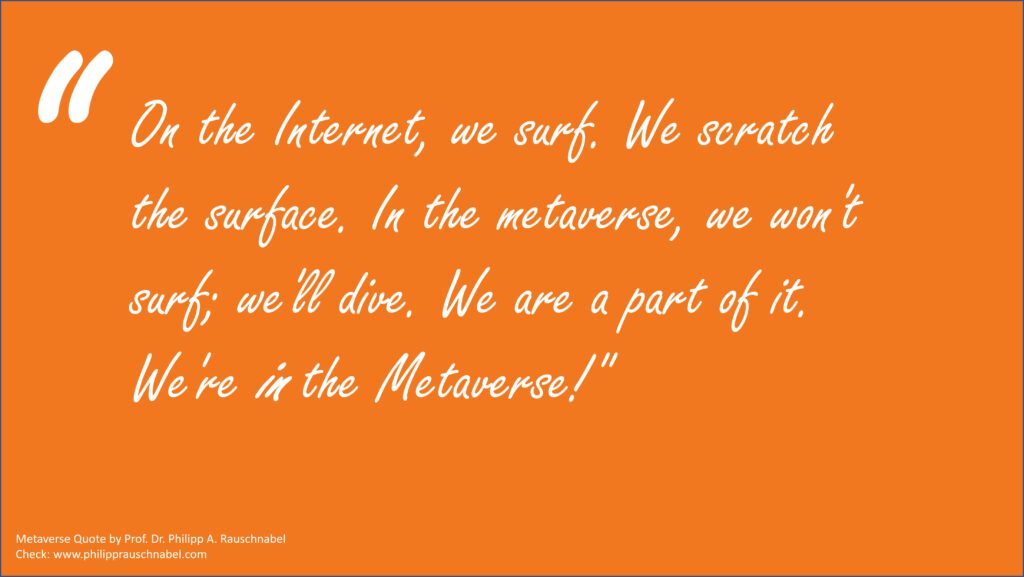According to our study from early December 2022, only about close to three percent of the population owns a Virtual Reality headset. This makes VR still a clear niche product – but with potential. After all, people could at least experience a simple form of VR through Cardboards and regular smartphones.
Metaverse: 7% are familiar with the term
The outlook is more optimistic for the term Metaverse. Although this term is not clearly defined, as I discuss here, it refers to a new form of decentralized 3D internet that people can access through XR technologies, such as Augmented and Virtual Reality. People should be able to move around with their own identity (avatar) on a platform-wide basis thanks to interoperable standards. They can engage in a variety of activities, such as communicating with other people, purchasing and trading virtual property, and engaging in daily activities, just like in real life. Current platforms such as Meta’s “Horizon World” or Decentraland are platforms that already implement parts of the Metaverse concept.
"On the internet, we surf. Or rather, we surf on the internet; we scratch the surface. In the Metaverse, we won't surf, we'll dive. We're part of it. We're in the Metaverse!"Rauschnabel; Video,minute 33:300
The term is gradually spreading among the population. 34% have never heard of the term Metaverse. A little less (28%) have heard of it but have no idea what it means. At least 31% have a rough idea of what could be hiding behind it, and around 7% claim to be familiar with the term.
Christmas in the Metaverse – acceptance surprisingly high
While work, gaming, and social activities are probably the most discussed use cases in our community in the Metaverse, these Metaverse applications also apply to Christmas. Of those familiar with the term Metaverse, 22% can imagine attending Christmas concerts, 15% watching the nativity story, and 15% attending professional Christmas parties.
In the overall sample – most of whom are not yet so familiar with the Metaverse term – the values are slightly lower. This is not surprising.
Considering the still low adoption rates of the hardware, these figures are far from low. The figures are rather astonishing, especially when you consider that the hardware is not yet available to the general public and that we are still in the early stages of metaverse development.

Survey: Online, N=1,213 (Germany), representative quotation based on Age, gender and region